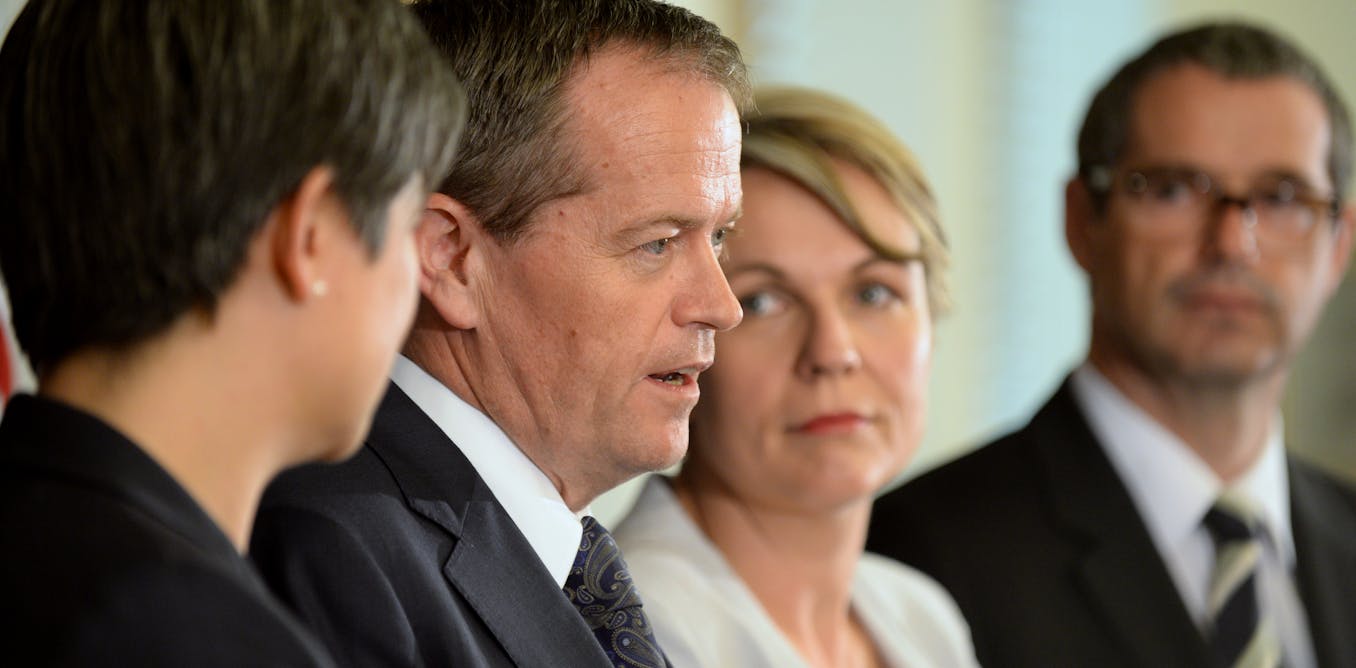
Labor’s factions are as strong as ever
- Select a language for the TTS:
- UK English Female
- UK English Male
- US English Female
- US English Male
- Australian Female
- Australian Male
- Language selected: (auto detect) - EN
Play all audios:
Labor has returned the right to choose frontbenchers to the caucus but today’s results show that whether it rests with the leader or parliamentary party, the party’s factions remain at the
heart of the process. At the caucus meeting everyone who stood for the shadow ministry was elected. And no one ran for it who had not been put up by the right or left faction, except Andrew
Leigh – and he had been given the nod to get the one spot set aside for an independent. There was one contest – for the position of chief whip. Anna Burke, the former speaker, lost to Chris
Hayes, and immediately (and not for the first time) lashed out at factional stitch ups. “Having left a room where I must admit the bulk of people… didn’t vote for me … not on the basis of
merit or perceived capability but on the numbers and the deals done beforehand, one has to question the newly found "democracy” in the Labor party, and the notion that we all have a
say,“ she wrote for Guardian Australia. "The current outcome of the shadow ministry reflects an immediate reversion to the ‘faceless men’ being firmly in control … Caucus voted on
factional lines for the leadership and then sub-factional lines for executive positions.” Burke has also turned it into a gender issue, saying it looked like a “couple of blokes” sitting
round carving up the spoils, with the right putting up hardly any women, and none from Victoria. At the start of his campaign for the top job Bill Shorten nominated former health minister
Tanya Plibersek as his preferred deputy; predictably she was unopposed. Plibersek is a good choice. From the left, she is articulate and an impressive television performer; her experience in
cabinet should have given her a grasp of issues across the board. She’s the woman Julia Gillard indicated (in a post election interview) that she would like to see as leader one day. There
are two women in the four person leadership team (and 11 in the shadow ministry), with Penny Wong retaining the position of Labor leader in the Senate. But a third woman, Victorian right
Senator Jacinta Collins, who was previously deputy leader in the Senate, has fallen victim to former communications minister Stephen Conroy, who had the weight in the Victorian right.
Conroy, who was Senate leader when Gillard was overthrown, quit the frontbench then. He and Shorten fell out bitterly over Shorten’s desertion of Gillard. But mutual aspiration reunited the
factional brothers, and Conroy threw every effort into helping Shorten get elected. The right gave each state its shadow ministry allocation, which meant that if Conroy was to be
accommodated, one of Mark Dreyfus, David Feeney or Jacinta Collins had to go. Dreyfus, former attorney-general was considered too good, Feeney was too powerful. That left Collins, even
though, in formal terms at the end of the government she was the most senior of the trio. So the woman who had had an extraordinary ride up the escalator in the last days of the Labor
government has gone down as rapidly. In the ultimate measure of factionalism, South Australian right powerbroker Don Farrell remains on the frontbench even though he has lost his Senate seat
from mid next year (although there is talk of pushing another senator out so he can survive). Labor’s shadow ministry differs only marginally from its old frontbench at election time,
perhaps not surprising given the loss of many seats. There are half a dozen newcomers (some of whom had been parliamentary secretaries): Feeney, Doug Cameron, Andrew Leigh, Shayne Neumann,
Claire Moore and Michelle Rowland. Leigh, briefly a parliamentary secretary under Julia Gillard, is a talented economist, Rowland (from the right) got a swing to her in her western Sydney
seat, courtesy of the appalling performance of Liberal candidate Jaymes Diaz. Warren Snowdon and Kate Lundy, junior ministers in the Labor government, did not make it onto the left ticket.
They both bucked the left line and voted for Shorten rather than Anthony Albanese. They were among nine who did – which cost Albanese the leadership. Leftwinger Laurie Ferguson (who voted
for Shorten) tweeted that Lundy was victim of “collateral payback”. But other left sources say it was not “ratting” that cost the pair places. Within the left, there were twice as many in
wanting positions as there were spaces in the left allocation. It’s the leader’s right to appoint the shadow parliamentary secretaries although these positions have also been part of the
wider negotiations. This level is a “nursery” for the more senior positions so Shorten needs to load as much talent into it as possible. Shorten will announce his distribution of portfolios
late in the week; he can’t afford to put the wrong people in key jobs because underperformers would hold him back and trying to shuffle them later can end up a difficult and politically
costly exercise. JIM CHALMERS IS THE GUEST ON THE POLITICS WITH MICHELLE GRATTAN PODCAST, AVAILABLE BELOW, BY RSS AND ON ITUNES.